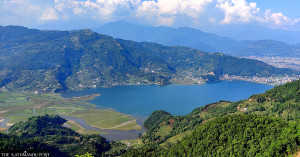Opinion
Fault in us
The fire in the Tri-Chandra College library is indicative of larger problems at Tribhuvan University
Banita Khanal
Who’s to blame?
Regarding the library incident, I have been seeing a lots of updates on Facebook, most of which blame those involved in the event. But are they the only ones to blame?
I remember passing by a man who looked quite aged during my first year in college. I assumed he was a teacher but to my surprise, he turned out to be a student union leader. Later, I learned that he had already finished his MBS programme, but was still involved with the students' union. I could not understand why he was allowed to remain in the union. How were new students to ever get a chance to lead that way?
The main purpose of a student union is to work for students' welfare. But do they ever do it? Mostly, they simply instigate fights. They get enrolled as union candidates for elections. Yet, students like us remain quiet and never protest. Probably because most of us just accept it as the way things are. If the unions padlock the university, we choose to go for tuitions or self-study. Had we questioned the activities of the unions then the situation would perhaps have been different. Instead, we continue to let our unions further deteriorate our universities.
Flawed system
The is also one of the main reasons why students leaving for studies abroad. Tribhuvan University has been reduced to a mere test and certification centre. In a one-year programme, classes hardly run for three or four months. The rest of the time, the university remains closed due to union protests, elections and the like. Any change in the political system seems to directly affect the functioning of the University.
There have been multiple instances in the past where student unions resorted to vandalism and violence. Only recently, there was a demonstration outside the Shankar Dev Campus to protest the arrest of members of a student union affiliated to the ruling Nepali Congress party, who were arrested by police for possession of arms and ammunition. Similarly, protests were announced by 11 student unions blaming the sister student wings of four major political forces—UCPN (Maoist)-aligned Nepal National Independent Student Union- Revolutionary, Nepali Congress- aligned Nepal Student Union, CPN-UML-aligned All Nepal National Free Student Union and the CPN-Maoist-aligned All Nepal National Independent Students' Union-Revolutionary—for the postponement of Free Student Union polls last year. This eventually resulted in numerous riots across colleges. Then, colleges were shut down for an indefinite period. Protests, riots and vandalism have become a culture among students to get their rational or irrational demands fulfilled.
In the crossfire
These activities have a very negative impact on regular students who are not a part of these unions. Tribhuvan University is located in Kirtipur, far from the city area. So when students reach there every day just to find their classes locked because of such protests, it is extremely frustrating. With skyrocketing bus fares, it is a wasteful journely. Students also have an extremely difficult time trying to have regular interactions with teachers. Many a time, they find themselves in the middle of a clash between the police and student unions. They have to face tear gas and run despite being innocent as they often find themselves in the middle of stone throwing.
There is no certainity about the exam dates either. Too often, students reach the examination centre just to discover that the exam has been cancelled. Their preparation becomes useless. It is never certain when the exam will be rescheduled. Even when tests are held, students cannot be certain that they will not be canceled. If a group of students from the union protests, demanding the cancelation of exams, these regular students are forced to leave the examination hall, even if they want to attend the test.
Still, students, as potential leaders of the future, should have knowledge of politics and they should be a part of it too. But the reason we have universities is for education. So, political parties should keep themselves out. Only then, can Tribhuwan University regain the respect it has lost.
Khanal holds a Masters in Business Studies from Tribhuvan University




 21.94°C Kathmandu
21.94°C Kathmandu










